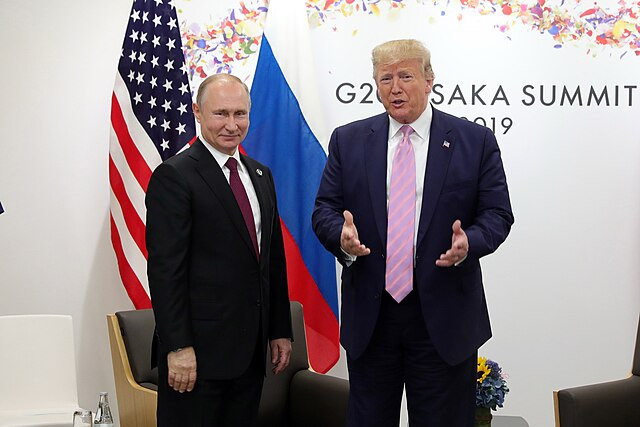U.S. and Russian officials are racing to finalize details for Friday's summit between President Donald Trump and Russian President Vladimir Putin in Alaska, where the war in Ukraine will top the agenda. As of Monday, the White House had yet to announce a venue, with advance teams from both countries still scouting locations in the state, chosen for its midway point between Washington and Moscow.
Trump pressed aides to organize the meeting at unusual speed, according to U.S. officials, hoping to test Putin's willingness to move toward a ceasefire. "Next Friday will be important, because it will be about testing Putin, how serious he is on bringing this terrible war to an end," NATO Secretary General Mark Rutte said Sunday on ABC.
Whether Ukrainian President Volodymyr Zelensky will join remains unresolved. The White House has not ruled out his participation, but officials said the priority is the Trump-Putin one-on-one. "If he thinks that that is the best scenario to invite Zelensky, then he will do that," U.S. Ambassador to NATO Matthew Whitaker told CNN. Ukrainian envoy to the U.S. Oksana Markarova said Zelensky is "ready to be anywhere to advance the agenda of peace" if invited.
European leaders have pressed for Ukraine's direct inclusion, warning against territorial negotiations without Kyiv at the table. German Chancellor Friedrich Merz told ARD, "We cannot accept that territorial issues between Russia and America are discussed or even decided over the heads of Europeans and Ukrainians." European Union foreign policy chief Kaja Kallas told Reuters, "Any deal between the U.S. and Russia must have Ukraine and the EU included, for it is a matter of Ukraine's and the whole of Europe's security."
Putin's proposal, delivered last week to Trump's envoy Steve Witkoff, reportedly centers on Ukraine ceding the entire eastern Donbas region, which Russia partially occupies. The fate of Kherson and Zaporizhzhia remains unclear, as does any arrangement for U.S. security guarantees.
At a meeting in Britain on Saturday, Vice President JD Vance heard European advisers stress the need for a ceasefire before any land concessions, and for reciprocity in troop withdrawals. A U.S. official said the talks yielded "significant progress," with European counterparts describing Vance as receptive. Zelensky later said, "Our arguments are being heard."
The Kremlin said Saturday the Alaska meeting will "focus on discussing options for achieving a long-term peaceful resolution" in Ukraine, acknowledging the process will be "challenging." Russian forces currently control about 20% of Ukraine's territory, including mineral-rich areas and Europe's largest nuclear power plant.
Trump's allies have urged him to ensure Kyiv's participation. "I do hope that Zelensky can be part of the process," Sen. Lindsey Graham (R., S.C.) told NBC after meeting Trump this weekend. "I have every confidence in the world that the president is going to go to meet Putin from a position of strength."






